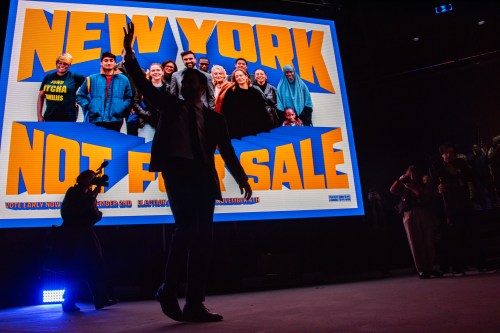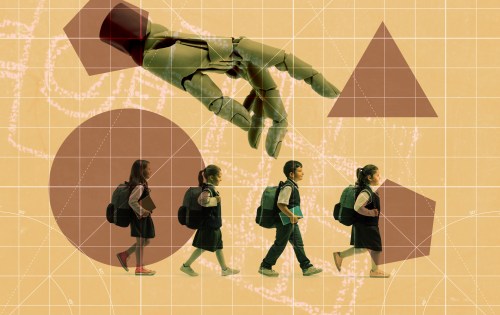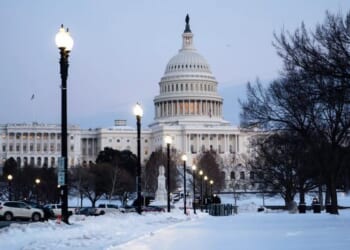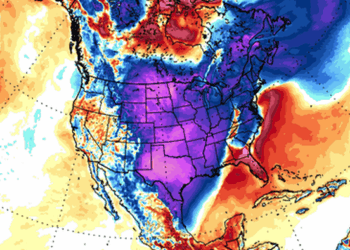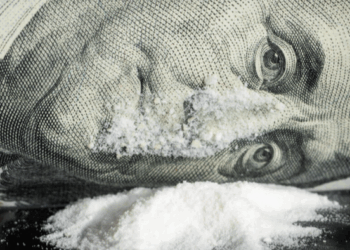You’re reading The Morning Dispatch, our flagship daily newsletter explaining all the news you need to know today in fewer than 10 minutes. Today’s newsletter has been unlocked by our sponsor. To unlock the full version every day, become a Dispatch member today.
Happy Wednesday! PSA to TMD readers in Mississippi: If you see a cute rhesus monkey roaming around, don’t cuddle it! They escaped from a crashed truck from Tulane University, carry hepatitis C, herpes, and COVID-19, and—per the Jasper County Sheriff’s Department—“are aggressive to humans.” And yes, we’re aware this reads like the start to Planet of the Apes.
Quick Hits: Today’s Top Stories
- Hurricane Melissa made landfall this morning in Cuba, after hitting Jamaica on Tuesday, causing damage and electrical blackouts across the island, and killing at least three people. The Category 5 storm also killed three people in Haiti and one in the Dominican Republic. Jamaica saw winds of up to 185 miles per hour, making the storm the strongest to hit land in the Atlantic since Hurricane Dorian in 2019. Jamaican authorities said on Tuesday that a damage assessment was not yet available, but many roads remain flooded or blocked with debris. Melissa is set to cross Cuba today, including the country’s second most populous city, Santiago de Cuba. Cuba has so far evacuated roughly 750,000 people.
- The Israel Defense Forces (IDF) announced this morning that its ceasefire with Hamas resumed at 10 a.m. local time, following a series of air strikes the IDF launched against Hamas targets on Tuesday. The strikes were on infrastructure in southern Gaza and came in response to Hamas violating the ceasefire agreement by not returning any bodies of deceased Israeli hostages in more than a week—with 13 still in Gaza—and attacking Israeli troops in Rafah yesterday afternoon, killing one soldier. Hamas claimed earlier on Tuesday to have retrieved two more bodies of deceased Israeli hostages, but has yet to hand over the remains. Vice President J.D. Vance acknowledged the Rafah attack carried out by “Hamas or somebody else within Gaza” was a blip in the ceasefire, but he maintained it would not crumble. “The ceasefire is holding,” he told reporters on Tuesday. “That doesn’t mean that there aren’t going to be little skirmishes here and there.”
- Defense Secretary Pete Hegseth announced on Tuesday that the U.S. military launched air strikes targeting four suspected drug trafficking boats off the western coasts of Central and South America, killing 14 people. Hegseth claimed there was one survivor, who had been rescued, and that U.S. intelligence had identified the four boats as being operated by “narco-terrorists,” traveling along known drug trading routes. “These narco-terrorists have killed more Americans than Al-Qaeda,” the defense secretary tweeted on Tuesday, “and they will be treated the same.”
- The federal government shutdown continues, with the Senate voting on Tuesday against a House-passed, Republican-backed temporary government funding bill. This was the 13th time the legislation failed to pass in the chamber. On Monday, Everett Kelley—the national president of the American Federation of Government Employees—called for both parties to come to terms on a government funding bill immediately, but House Democrats—publicly and privately—indicated they would not back off their demands and favor the GOP-backed bill. Federal air traffic controllers missed their first paycheck on Tuesday, and 25 states plus Washington, D.C., sued the administration on Tuesday, arguing that the government has a legal obligation to distribute Supplemental Nutrition Assistance Program (SNAP) benefits, after the administration said the benefits would be suspended on November 1. Also, a federal district judge issued a preliminary injunction, extending her previous order that temporarily barred the White House from firing federal employees during the shutdown.
- The Senate also voted 52-48 on Tuesday to end an emergency declaration that justified President Donald Trump’s 50 percent tariff on most imports from Brazil, with five Republican senators joining Democrats. In July, Trump imposed the tariff, citing trials of Brazil’s former President Jair Bolsonaro over charges that he attempted to organize a coup to remain in power, which Trump described as a “Witch Hunt.” But the House of Representatives is unlikely to vote or advance the bill in the near future.
Is it true the Pentagon is cracking down on free speech?
Journalists covering national security are pushing back on new Pentagon rules that could bar them from briefings if they publish “unauthorized” information. Major outlets, from The New York Times on the left to Fox News on the right, refused to sign the pledge. What started as a dispute over access has evolved into a fight over the truth itself. Freespoke helps you see every perspective regarding free speech concerns like this unprecedented clash between the press and the Pentagon.
Bad Bet
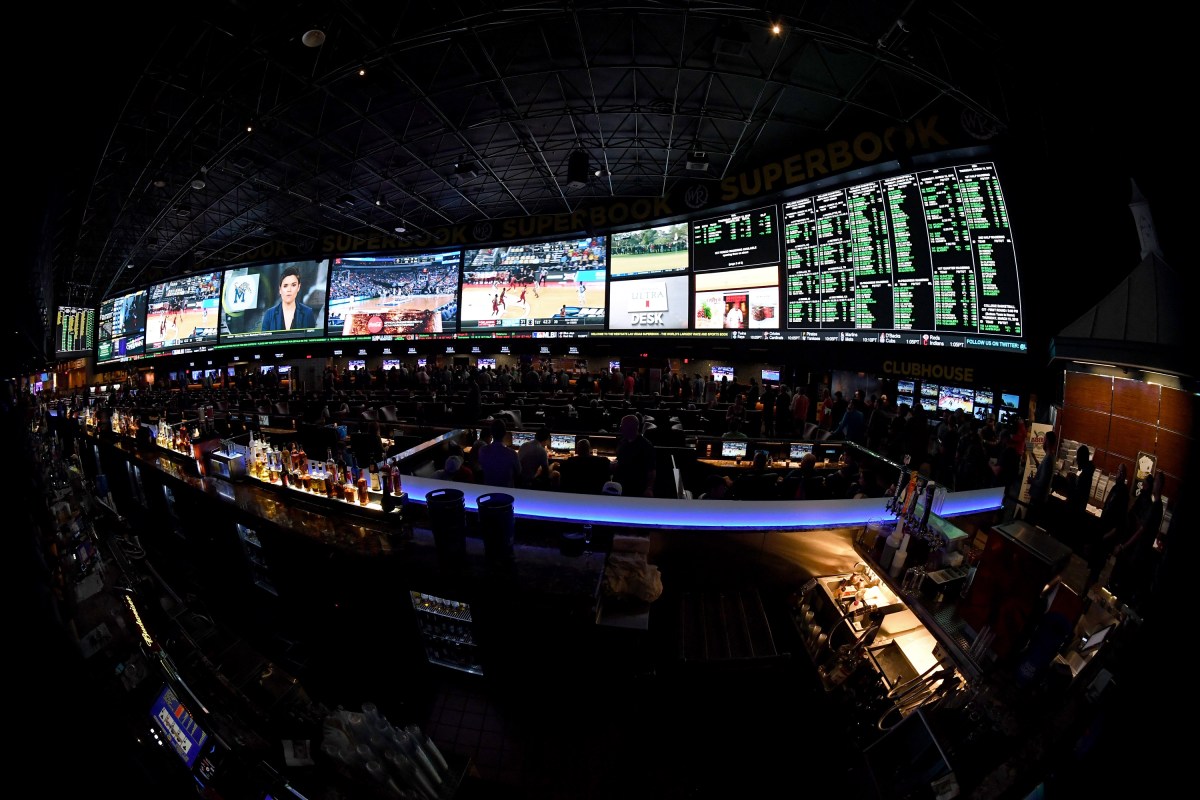
In 2014, the NBA’s new commissioner, Adam Silver, took to the pages of the New York Times to argue for the legalization of sports gambling, making the NBA the first major U.S. sports league to endorse the practice. “I believe that sports betting should be brought out of the underground and into the sunlight where it can be appropriately monitored and regulated,” he wrote.
In the 11 years since, sports gambling has become mainstream in American sports, but remains just as controversial—with a major scandal landing Silver’s league on the front page of that same newspaper last week. On Thursday morning, Chauncey Billups, a former NBA player and the current coach of the Portland Trail Blazers, was arrested at his home by FBI agents. That same day, FBI officials announced the arrests of two more NBA figures: Miami Heat point guard Terry Rozier and former Cleveland Cavaliers player Damon Jones.
All three men were arrested on charges related to gambling. Jones and Rozier were accused of enabling illegal wagers on basketball games, and Billups is accused of serving as the “face card” (essentially, high-profile bait) for high-roller poker games run by the mob. At a Thursday press conference, FBI Director Kash Patel called the scale of the fraud “mind-boggling.”
But a high-profile gambling scandal involving professional athletes isn’t necessarily the most surprising news story. In recent years, gambling—always present in American sports—has risen to new cultural prominence as more states have legalized it and mobile sportsbooks have made wagering easily accessible to anyone with a smartphone. Echoing Silver’s 2014 argument, advocates for these changes say that legalizing widespread sports gambling has made it easier to regulate the process. But critics say that the legitimization of gambling risks increasing the number of Americans placing bets and puts pressure on the integrity of sports themselves.
Gambling-related content is now an unavoidable part of following sports and sports journalism. ESPN’s SportsCenter regularly features segments focused on different teams’ odds of winning, for its hundreds of thousands of daily viewers—and even its in-game broadcasts devote time to discussing betting. ESPN has its own in-house sportsbook. FanDuel, a betting app, is a major sponsor of the popular website The Ringer. Sports Illustrated has a “Betting” vertical on its home page. Shams Charania was a “commercial partner” of FanDuel while also being a journalist for The Athletic (which was bought by the New York Times in 2022). “Everyone is compromised,” said prominent NBA columnist Zach Lowe on his podcast last week.
What’s unclear, however, is whether or not the number of “problem gamblers” is rising.
“There’s been no dramatic increase” in recent years, Jeff Derevensky, a psychology professor at McGill University and the director of the International Centre for Youth Gambling Problems and High-risk Behaviors, told TMD. But he noted an important caveat: It usually takes “five to seven years” for someone to become a problem gambler after being introduced to betting. And Murphy v. NCAA, the case in which the Supreme Court struck down the Professional and Amateur Sports Protection Act that had banned most states from allowing sports gambling, was decided seven years ago.
And new evidence suggests the number of problem gamblers may be rising. A recent study published in JAMA Internal Medicine found that from 2018 through 2024, internet searches for help with gambling addiction rose by 23 percent—a trend that consistently correlated with the opening of sportsbooks in a given state. The launch of online sportsbooks led to an even greater increase. A few studies have also found that opening sportsbooks had small but noticeable effects on the prevalence of gambling’s nastier outcomes, including bankruptcies, domestic violence, and lowered credit scores.
A report from the National Council on Problem Gambling (NCPG), however, found that the number of problem gamblers might be leveling off. The number of adults who reported they had experienced at least one potentially problematic gambling behavior “many times,” which includes gambling weekly or more, or agreeing with the statement “gambling is a good way to make money,” was 8 percent. That’s similar to the 7 percent number reported in the survey’s first iteration (in 2018), and lower than the 11 percent reported in 2021, which the report’s authors attribute to the end of the COVID pandemic.
More ominously, the NCPG also found that gambling online, betting on sports specifically, and being a man under the age of 35 were each among the six indicators most likely to correlate with risky gambling activity. While 22 percent of American adults say they’ve placed a bet on sports in the past year, 36 percent of men under 30 have done the same, according to the Pew Research Center. Another survey, released this February by the Siena College Research Institute, found that 48 percent of men aged 18-49 have an account with an online sportsbook.
Sports gambling has, like nicotine pouches and beer kegs, become part of American culture for young adult men. Barstool Sports, the brash arbiter of taste for American fraternities, has its own gambling-dedicated podcasts, YouTube channels, and social media accounts. Its accounts also show that the types of bets favored by online gamblers have changed. A Tuesday post from Barstool Gambling, which boasts more than 600,000 followers, advertised two commentators discussing a “three sport parlay:” betting that New York Knicks point guard Jalen Brunson would score more than 30 points in a game against the Milwaukee Bucks; that Los Angeles Dodgers catcher Will Smith would have a combined more than 1.5 home runs, hits, and runs batted in; and that the New York Islanders and Boston Bruins hockey teams would combine for more than 6.5 goals in their game Tuesday night.
Parlay bets like these, which involve betting on multiple “prop bets” (a yes/no bet on whether something will happen, like a player scoring more than 20 points in a basketball game), are a massive source of betting revenue. While unified data is hard to find, in 2023, parlays accounted for 60 percent of all sports bets in Illinois. Parlay and prop bets, which gamblers can make on an almost minute-by-minute basis, are a “continuous form of gambling,” said Derevensky, easily encouraging “loss chasing,” or desperately trying to recoup losses by betting even more.
These sorts of bets also pose a heightened threat to the integrity of major sports leagues and are at the center of the most recent scandals.
“Really, the corrosive part is the huge expansion in prop betting,” Brad Humphreys, a professor of economics at West Virginia University who studies gambling, told TMD. While convincing an entire team—à la the 1919 Black Sox scandal—to throw a game is a difficult task, convincing a single player or coach to take a relatively minor action is far easier. According to the FBI indictment filed last week, Rozier—the Miami Heat player—told an associate that he would take himself out of a game early and to bet the “under” on his projected total points, while Jones—the former Cavaliers player—leaked information about injuries to Lakers players to bettors. Last year, a player on a semi-temporary contract, Jontay Porter, was banned from the NBA for life after it was revealed that he had taken himself out of games early to enable gamblers to bet the under on his statistics.
Yet defenders of the gambling industry say that the only reason Porter and Rozier were caught was because of legal online sportsbooks. State and tribal regulations mandate that sportsbooks have contracts with independent integrity monitors who are required to report irregular betting patterns, which is what happened in the most recent case, Joe Maloney, the senior vice president of strategic communications at the American Gaming Association, told TMD.
“Leagues did not acknowledge the reality of illegal gambling on their games,” before legalization, he said. “Now that there is legalization, and these partnerships and agreements are in place, when the policies are broken, there are punishments.” Maloney also argued that legal sportsbooks have a strong interest in preserving public faith in the integrity of professional sports, because the perception of corruption risks driving away customers.
Increasingly, however, it appears the public and sports leaders may be reconsidering their embrace of sports gambling. On Monday, the NBA issued a memo to all 30 teams notifying them that it was reevaluating its practices regarding sports betting. “Every effort must be made to ensure that players, coaches and other NBA personnel are fully aware of the dire risks that gambling can impose upon their careers and livelihoods,” it read. Around 40 percent of U.S. adults now say that sports betting is harmful to society and to sports themselves, a significant increase from recent years.
Proposals to ban prop bets, reduce advertising, and place age restrictions on gambling may also gain traction with state and federal regulators. “You look at the NBA scandal right now, and it poses a grave threat to the integrity of sports. I think prop bets in particular are an ongoing challenge, and I expect Congress and the congressional committee in particular to examine them closely,” Sen. Ted Cruz, a Republican from Texas, told TMD on Tuesday. On Monday, the Senate Committee on Commerce, Science, and Transportation, which Cruz chairs, sent a letter to Silver asking him to provide it with a briefing on the NBA’s betting procedures.
Silver himself noted the danger of prop bets last Tuesday, just days before news of the arrests broke. Speaking with popular sports talk show host Pat McAfee, Silver said the NBA had asked its sportsbook partners to “scale back” on some prop bets, especially those involving players near the bottom of a team’s depth chart. Maloney added that gambling operators might be open to more restrictions. “Our industry embraces regulation, because it helps legitimize the importance of pursuing this activity in the legal marketplace,” he said.
NBA players and coaches, too, have raised concerns about the effects of widespread gambling on their sport. “A lot of people get stuck, and it’s hard to get out. All you gotta do is download the app,” said Chicago Bulls center Nikola Vucevic on Friday. “Before you used to hear, ‘Vuc, get a win.’ Or, ‘Hey, do this and that.’ Now it’s like, ‘He
Today’s Must-Read
The Silver Queen gondola usually ferries skiers to the top of Aspen Mountain in a little under 20 minutes. Despite its beginner-unfriendly reputation, the 11,200-foot peak doesn’t offer the best ski terrain in the valley, but its position in the center of downtown makes it a favorite among tourists staying in one of the luxury hotels dotted throughout the ultrawealthy ski destination. It’s also a popular summer ride, when a moderately expensive round-trip lift ticket will grant you access to the Sundeck, the mountain’s summit-top restaurant, where you can enjoy overpriced beer and mediocre food while looking out over a priceless and not-so-mediocre Rocky Mountain landscape. On this summer night, however, a sign reading “Closed for Private Event” blocks the entrance to the glass-walled base station.
Toeing the Company Line
In Other News
- A U.S. federal agent attempted to pay Venezuelan dictator Nicolás Maduro’s personal chief pilot in exchange for flying the Venezuelan leader to waiting U.S. authorities.
- Texas Attorney General Ken Paxton sued two pharmaceutical companies for allegedly withholding information from consumers about Tylenol’s supposed risks for causing autism.
- The Department of Health and Human Services fired Steven Hatfill, a COVID-19 vaccine skeptic who served as chief medical officer of the agency’s Administration for Strategic Preparedness and Response.
- The Washington Post reported that the GOP-led Senate Foreign Relations Committee will not advance President Donald Trump’s nominee for ambassador to Kuwait, Amer Ghalib.
- Trump fired all six members of the Commission of Fine Arts, an independent federal agency that oversees government projects, including the president’s White House ballroom and proposed triumphal arch.
- A federal district judge ruled that interim U.S. Attorney for the Central District of California Bill Essayli had overstayed the 120-day window for temporary appointees and must step down.
- At least 64 people, including four police officers, were killed in Brazil’s capital city, Rio de Janeiro, on Tuesday following what the Brazilian government said was counterterrorism operations against armed gangs.
- Pakistani officials said this morning that negotiations to secure a long-lasting peace deal between Pakistan and Afghanistan have “failed.” Shortly after, Pakistan’s defense secretary promised to “obliterate” the Taliban.
- Ivory Coast President Alassane Ouattara won the country’s October 25 presidential elections, securing nearly 90 percent of the vote, according to provisional results. The government had previously disqualified several of his opponents.
- Ukrainian President Volodymyr Zelensky told reporters on Tuesday that he is ready to engage with Russia to discuss peace terms but remained opposed to ceding territory to Russia.
- The Toronto Blue Jays won Game 4 of the World Series on Tuesday night, defeating the Los Angeles Dodgers 6-2, and evening the series to two games apiece.
- OpenAI, the developer of ChatGPT, announced on Tuesday that it would restructure as a for-profit company. The non-profit arm will receive a $130 billion stake in the company and remain the controlling entity.
- Apple’s market share surpassed $4 trillion on Tuesday, only the third publicly traded stock to meet the benchmark.
- Nvidia CEO Jensen Huang on Tuesday announced a new software platform, NVQLink, which can connect quantum processors to AI supercomputers.
- American semiconductor start-up Substrate announced on Tuesday that the company raised $100 million for an upcoming product to accelerate the chipmaking process.
- Awais Aftab: “You Aren’t In The DSM.” (Asterisk)
- Hannah Ritchie on how AI can revamp weather forecasting. (Sustainability by the Numbers)
- Eric Umansky reports on how the Trump administration has made it harder for male veterans to get coverage for breast cancer. (ProPublica)
- Scott Calver documents his ride along with “the Repo Man.” (Wall Street Journal)
- The case to “let college students buy drinking licenses.” (No Dumb Ideas)
- Eli McKown-Dawson on whether campaign scandals can still impact elections. (Silver Bulletin)
The Hill: Hochul Says She Thought ‘Tax the Rich’ Chant Was ‘Let’s Go Bills’
Hammer: Wolfgang Van Halen Reacts to the Term ‘Nepo Baby’: “I’m Not Going To Name Names, but in Some Cases It Does Apply”
Let Us Know
Have any thoughts or questions about today’s newsletter? Drop us a note in the comments or by emailing us at tmd.questions@thedispatch.com. We read every submission, and your message could be featured in an upcoming “Behind the Scenes” segment.
Have any thoughts or questions about today’s newsletter? Become a member to unlock commenting privileges and access to a members-only email address. We read every submission, and answer questions in the following edition of TMD.





